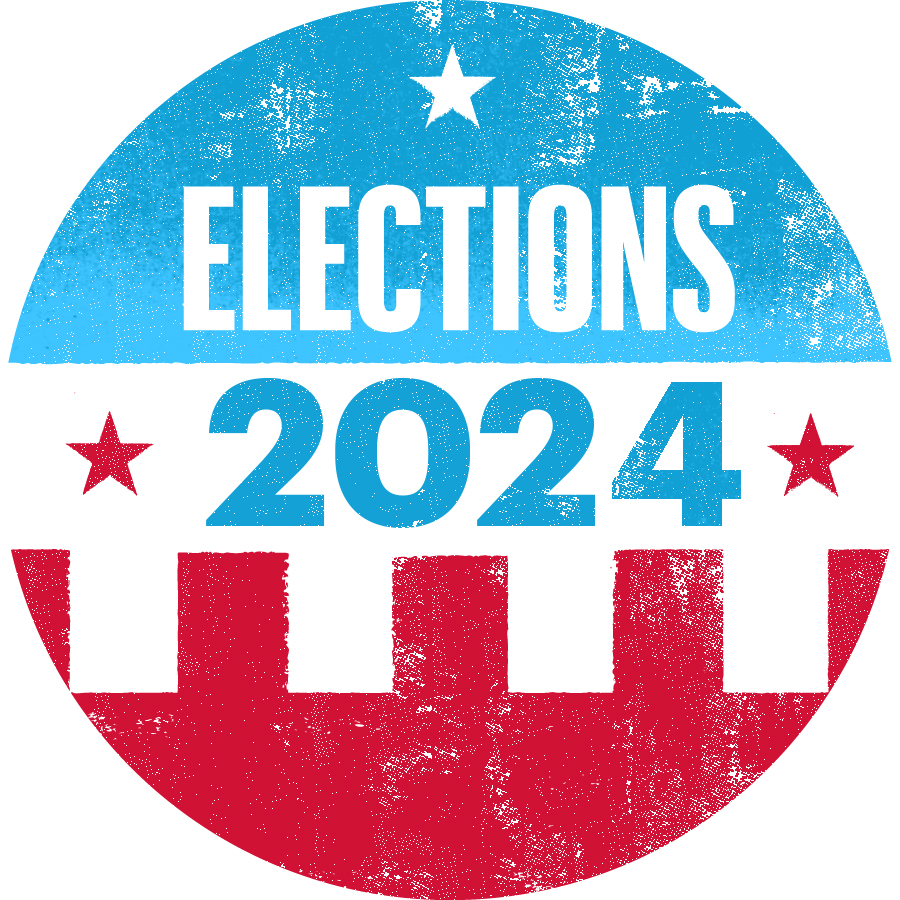AARP Eye Center
How to Vote in North Carolina’s 2024 Elections
Voting after Hurricane Helene
Western counties impacted by Hurricane Helene are under a slate of emergency voting measures issued by the North Carolina General Assembly on Oct. 9. The emergency measures apply to Alexander, Alleghany, Ashe, Avery, Buncombe, Burke, Caldwell, Catawba, Clay, Cleveland, Gaston, Haywood, Henderson, Jackson, Lincoln, Macon, Madison, McDowell, Mitchell, Polk, Rutherford, Transylvania, Watauga, Wilkes and Yancey counties. The State Board of Elections has set up a webpage to help affected voters get the latest information about casting a ballot. Changes to voting are also reflected in this guide.

Important dates
- Last day of regular (not same-day) registration: Friday, Oct. 11, 5 p.m.
- Early in-person voting: Thursday, Oct. 17 through Saturday, Nov. 2, 3 p.m.
- Last day to request an absentee ballot: Tuesday, Oct. 29, 5 p.m.
- Last day to request an absentee ballot in person for counties impacted by Helene only: Monday, Nov. 4.
- Election Day: Tuesday, Nov. 5.
- Last day to return absentee ballot: Tuesday, Nov. 5, 7:30 p.m.
Voting at a glance
- Voter registration: Use the state's voter search tool to check your registration status.
- Absentee voting: Any registered voter who is eligible to vote in an election may request to vote absentee by mail.
- Early in-person voting: Available Thursday, Oct. 17, through Saturday, Nov. 2, until 3 p.m.
- Voting at the polls: Polls are open from 6:30 a.m. to 7:30 p.m. Bring a photo ID, such as your driver’s license or state ID card.
- Voting after Hurricane Helene: Emergency voting measures may impact how and where you vote.
Recent voting changes in North Carolina
- A list of emergency voting measures, issued by the North Carolina General Assembly on Oct. 9, are in place for 25 western counties impacted by Hurricane Helene. Visit the State Board of Elections’ Helene webpage for more information.
- Voters will be asked to show an acceptable photo ID when voting due to a 2023 court ruling. Voters from counties impacted by Helene who have lost their ID are exempt from this requirement, but must fill out additional paperwork.
- Absentee ballots must be received by 7:30 p.m. on Election Day; a law passed in 2023 eliminated the three-day grace period.
- Redistricting in 2023 changed the boundaries of state legislative and U.S. congressional districts and may affect which candidates appear on your ballot. Use the state's Find Your Legislators tool to look up your district.
Voter registration
The regular registration deadline is Friday, Oct. 11, at 5 p.m. It has not been extended due to Hurricane Helene. If you miss the deadline, you can register and vote on the same day, but only during early voting. Register to vote:
- Online: If you have a driver’s license or an ID issued by the North Carolina Division of Motor Vehicles, you can register to vote and update your registration address or party affiliation through the DMV’s online voter registration service.
- By mail: Print a copy of the voter registration application on the North Carolina State Board of Elections website. Then mail the completed form to your county board of elections.
- In person: Visit your county board of elections office or the DMV.
Military and overseas voters have different registration deadlines and instructions.
Check your registration status by using the state’s voter search tool.

Same-day registration
You cannot register to vote on Election Day in North Carolina, although there are a few exceptions for newly naturalized citizens and felons. For most voters, same-day registration is only available during early voting. Early voting is available to all voters at any early voting site designated by your county board of elections.
Check your voter registration status
You can check your registration status using the state’s voter search tool.
How to request an absentee ballot
Request an absentee ballot online, by phone or in person. No reason is needed.
- Online: Request an absentee ballot through the state board of elections online portal. Or download an absentee ballot request form from the North Carolina State Board of Elections website.
- By phone or in person: Call your county board of elections office to request a form, or pick one up at a county or state board of elections office.
Mail or drop off the completed and signed form to your county board of elections office. Your form must be received (not just postmarked) by 5 p.m. Tuesday, Oct. 29.
Remember to include your date of birth and North Carolina driver’s license number, North Carolina DMV-issued state ID number or the last four digits of your Social Security number. A close relative, such as a spouse, sibling or child, or your legal guardian can request and submit the form on your behalf.
If you are displaced by Hurricane Helene, you can request an absentee ballot be delivered to your new location. Follow the instructions above.
If you have already requested an absentee ballot, but need a new one because you’re at a new location, or because your original ballot is damaged or lost, contact your county board of elections office to void your current ballot and reissue a new one.
An emergency measure permits voters in counties impacted by Hurricane Helene to request and receive an absentee ballot in person at their county board of elections office until Nov. 4, the day before the general election. As required, the voter or voter’s close relative or legal guardian must complete a request form with the necessary personal information for the voter.
Completing an absentee ballot
Two witnesses (age 18 or over) or one notary public must be present when you fill out your ballot and must sign the back of your ballot envelope. You must include a copy of an eligible photo ID or fill out an exception form. Find detailed instructions for voting by mail on the North Carolina State Board of Elections website.
Returning an absentee ballot
Return your ballot:
- By mail: Mail your ballot to your county board of elections office. It must be received (not just postmarked) by 7:30 p.m. on Election Day — that’s Tuesday, Nov. 5 — so mail your ballot early to ensure it arrives on time. Postmarked ballots that arrive after the deadline will not be accepted. Include a copy of an acceptable photo ID or fill out an ID Exception Form.
- In person: Hand-deliver your completed ballot to an early voting site in your county or your county board of elections office during operating hours. Completed absentee ballots cannot be submitted at an Election Day polling place. Voters of counties under Hurricane Helene emergency measures, or a close relative or legal guardian of theirs, can drop off their completed absentee ballots at:
- Any early voting location in North Carolina during operating hours
- Any of North Carolina’s county board of elections offices
- The State Board of Elections office in Raleigh
Ballots must be submitted by 7:30 p.m. on Election Day. Election Day polling places are not an option.
Military and overseas voters have different absentee voting instructions and deadlines.
Register with BallotTrax to check your ballot’s status.
Voting in person before Election Day
You may cast your ballot at any early voting site in your county. Early voting runs from Thursday, Oct. 17, through 3 p.m. Saturday, Nov. 2.
An emergency measure allows county boards of elections impacted by Hurricane Helene to change, add or remove early voting sites, plus add or reduce days and hours a site is open within the early voting period. To do so, there must be a bipartisan majority vote. Visit the state’s early voting sites webpage for an up-to-date list of locations, or contact your county board of elections office.
Voting at the polls on Election Day
On Election Day, you must vote at your designated polling place, which may have changed for voters in counties affected by Hurricane Helene. Find your polling place by logging into the voter search tool, or by using the polling place search tool, or by contacting your county board of elections office. (Note: Counties that change polling places due to Helene must mail notices of changes to affected voters and notify local media and county political parties to help disseminate the news.)
Polls are open from 6:30 a.m. to 7:30 p.m on Election Day. If you are in line by 7:30 p.m., you’ll be allowed to vote.
To view or download sample ballots, enter your information into the state’s voter search tool to pull up your voter record, then scroll down to “Your Sample Ballot.”
Voter ID Requirements on Election Day
You will be asked to show an acceptable photo ID, such as a driver’s license or state-issued ID card, when voting. If you don’t have the required ID, you’ll still be allowed to vote, but you must fill out additional paperwork.
Those 65 or older may use an expired ID as long as it was current on their 65th birthday.
If you forgot your ID, you can vote a provisional ballot and bring the required documentation to your county board of elections office by 5 p.m. on Thursday, Nov. 14.
Voters without an ID can get a free ID card from the North Carolina Division of Motor Vehicles or their county board of elections office.
Find more information about North Carolina’s Voter ID law, including a full list of acceptable IDs, on the state board of elections website.
Voting with a disability
If you have a disability and need help entering the voting booth or marking your ballot, you may ask a person of your choice to assist you, as long as that person is not your employer or union representative or their agent. North Carolina offers curbside voting at each polling place and early voting site.
Blind or visually impaired voters may vote online using an accessible absentee ballot.
Find more information about accessible voting, including assistance for voters in care facilities, on the North Carolina State Board of Elections website.
Voting from a nursing home or long-term care facility
If you live in a nursing home or care facility and do not need assistance because of a disability, you may request help from a near relative, legal guardian or multi-partisan assistance team, or MAT, appointed by your county board of elections.
A MAT can provide assistance with such activities as voter registration, requesting an absentee ballot, serving as an absentee witness and marking an absentee ballot. Contact your county board of elections to schedule a MAT visit.
Long-term care residents with a disability can request a person of their choosing to help them (except their employer or union representative) or they can request a visit from a MAT.
Find more information on the state elections board website.
Editor’s note: This article was originally published on Dec. 29, 2023, and was updated on Oct. 25, 2024, to remove Election Day polling places as an option for Helene-impacted voters to return their absentee ballots, and to remove county board of elections offices as an option for in-person Election Day voting for Helene-impacted voters.
Natalie Missakian covers federal and state policy and writes AARP’s Fighting for You Every Day blog. She previously worked as a reporter for the New Haven Register and daily newspapers in Ohio. She has also written for the AARP Bulletin, the Hartford Business Journal and other publications.
Emily Paulin is a reporter for AARP covering nursing homes, health care, and federal and state policy. Her work has also appeared in Broadsheet, an Australian lifestyle publication.

















)


















.jpg?crop=true&anchor=13,195&q=80&color=ffffffff&u=lywnjt&w=2008&h=1154)





























